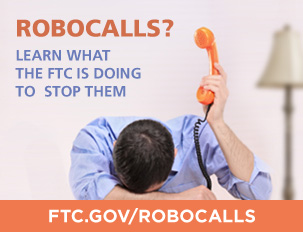Every year, about this time, we all see the same emails and social network posts. They tend to culminate around or right before the beginning of the new year.
Your cellphone number is going public next (month, year, whatever)!
Make sure you get your cellphone number in the National Do-Not-Call Registry.
Deep breath. It will be okay. I promise.
First, let me assure you, as a professional who works for a major cellphone carrier - your cellphone number is not and will not be made public ...at least not by the doings of the carrier. I'm not saying your cellphone number won't make it into the hands of telemarketers or cold-call lists. That's a different matter. More on that below.
Before I get to the real issue, let me also say that adding your cellphone number to the National DNC registry is never a bad idea. I highly recommend you DO add all numbers to the NDNC registry, including home, business and cell. You can learn more about the NDNC registry and how to respond to unsolicited calls from their site:
http://www.consumer.ftc.gov/articles/0108-national-do-not-call-registry
Let's get to the heart of the matter.
Are you a "cord cutter?" Cord-cutters are people who have eliminated home land-line phone service in their homes in lieu of using a cellphone. Most of the people I know are cord-cutters, including me. I see no reason to pay for POTS (plain old telephone service) in the home, especially since e-911 service mandates and technology improvements have removed that last safety hurdle. Almost everyone has a cellphone so why pay for an extra line of service that's rarely if ever used?
What most people don't think about when they decide to "cut the cord" is what then becomes their "home" telephone number?
Our society still revolves around "home" phone numbers in contact data bases. We see them all the time, student registration, doctor's office, dentist, employer, post office, shipping a package with FedEx, credit card, bank, 401k plan, social networks, job applications... the list of businesses and sites that ask for your home phone number is endless. Many business have "adopted" their customer contact entries to accommodate a cellphone field. And in some cases it makes sense, like emergency contact for your child's school. But few, if any, have eliminated the "home phone" box on the form.
What happens when you no longer have a home phone at home?
The problem is not with carriers releasing cellphone numbers to the public. They don't need to. Most if you do it on your own, and you don't even realize that you're doing it.
Most people wind up giving away their cellphone number to businesses and service providers. Major mistake! Don't be so naive as to think that businesses, even small local businesses, won't sell or market your contact information. It's called being in business. Businesses survive with customers. Large contact clearing houses pay handsomely for new customer contact numbers. This is especially true when it's accompanied with other details and data about who you are, what you like, where you shop, what you buy, where you live, how many kids you have, your age, race, faith, gender, employer, if you like the color blue...on and on.
Once you list a cellphone on any form, record, application or online site, it's as good as making it public record. You're giving permission for whomever owns that form...or whomever they sell it to... to call you. On your cellphone. As they see fit. Really.
If you're a cord-cutter, but don't like the idea of giving away your cellphone number, I urge you to get a virtual phone number. You can use a virtual number as your "home" contact number in any situation. You can also use a virtual number as a "dummy" cellphone number (think: that pesky dude at the office/bar/club keeps hitting on you). That said, I also urge you to understand how to use it for actual human contact.
There are several virtual phone providers out there. I personally recommend using Google Voice. It's free with a Gmail account. You can make calls with Google Voice from your office or cellphone. Callers will see your GV number on caller ID so they are none the wiser. You can also use GV to manage voice mail, and personal greetings. The best thing about GV is how they allow you to filter callers. Anonymous caller? No problem! Create an automatic filter to drop those calls. Calls from mom, dad, kids or the boss? They can all be added to a group that is automatically forwarded to any actual phone number of your choosing. Or all of them at once. You can even use GV to send and receive SMS (text) messages. See the beauty?
One of my favorite features of GV is the ability to customize personal greetings. For example, you can create a greeting for mom or grandma that's eloquent and well-spoken...makes them feel all warm-n-fuzzy. Create a special "professional" greeting for unknown callers or businesses, which is especially handy if you're in the hunt for a job. And of course, you want that super-awesome greeting for your besties; "What up bitches?!"
If you've already given away your cellphone number to any business or service, then don't be surprised if you get robocalls or cold calls. There's not a lot you can do about it, other than add them to a "SPAM" contact in your phone. Most cellphone carriers give their customers the DIY tools online to create 'block' lists so make sure you use them.
Adding your cellphone number to the NDNC registry will not prevent businesses from calling with whom you've already given permission to your cellphone (and by 'permission' I really mean 'knowledge of'). But it should help prevent future distribution of your contact info to unrelated businesses. And it certainly doesn't hurt.
Cheers to a little more privacy!



